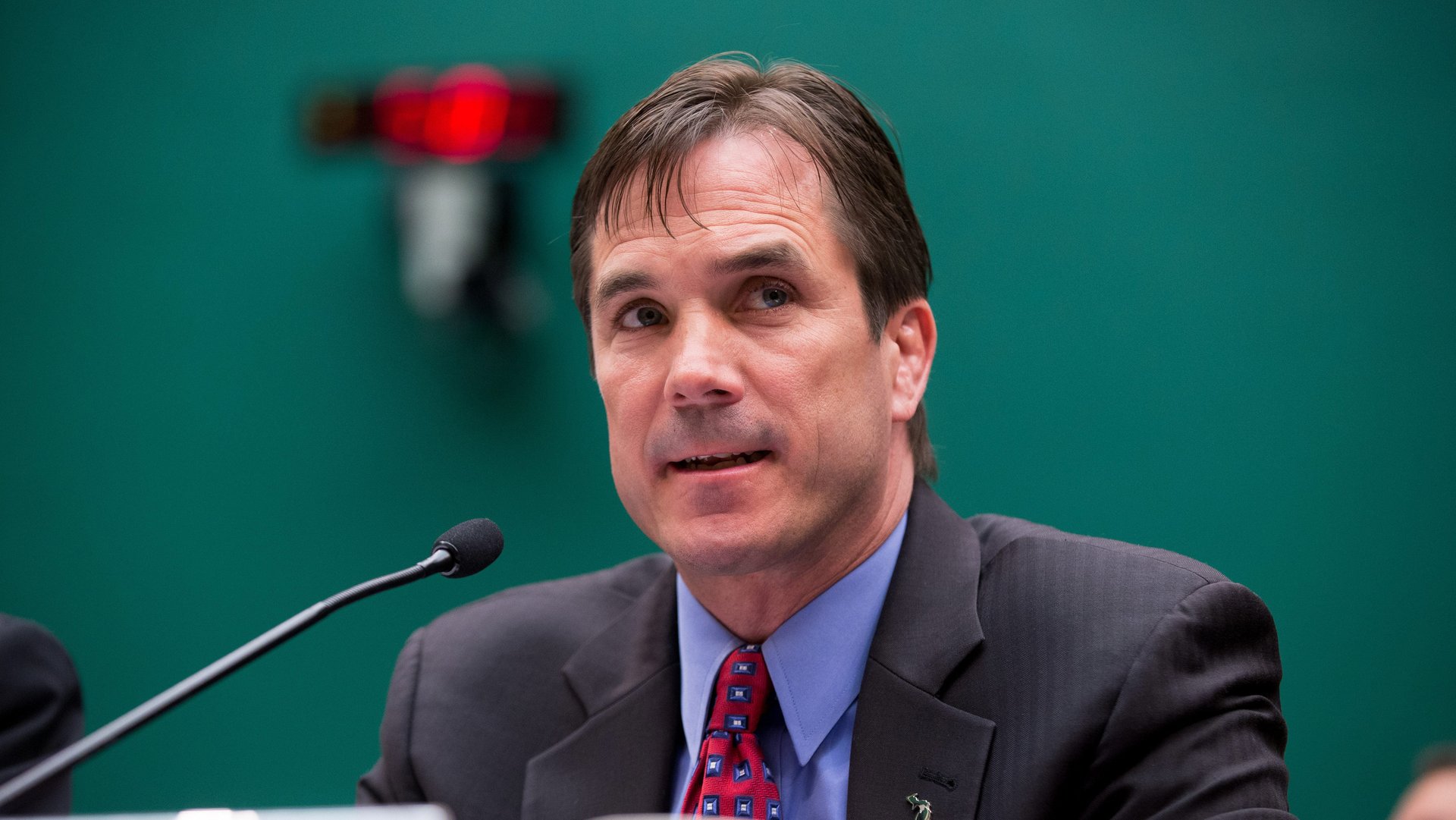The Flint water crisis has led to manslaughter charges for a Michigan health official
When Nick Lyon, the head of Michigan’s health department, learned of an uptick of Legionnaire’s disease in the Flint area in January 2015, he chose not to alert the public to the deadly pathogen lurking in their drinking water. He didn’t tell the governor about it until a year later. The outbreak, which began in 2014 and lasted until October 2015, ultimately killed 12 people. One of those deaths led to a charge of involuntary manslaughter, levied against Lyon June 13.


When Nick Lyon, the head of Michigan’s health department, learned of an uptick of Legionnaire’s disease in the Flint area in January 2015, he chose not to alert the public to the deadly pathogen lurking in their drinking water. He didn’t tell the governor about it until a year later. The outbreak, which began in 2014 and lasted until October 2015, ultimately killed 12 people. One of those deaths led to a charge of involuntary manslaughter, levied against Lyon June 13.
“Lyon’s acts and failure to act resulted in the death of at least one person”—85-year-old Robert Skidmore—according to the charging document said, according to the New York Times.
“Defendant Lyon exhibited gross negligence when he failed to alert the public about the deadly outbreak and by taking steps to suppress information illustrating obvious and apparent harms that were likely to result in serious injury,” the document continued. “Defendant Lyon willfully disregarded the deadly nature of the Legionnaires’ Disease outbreak.”
If convicted, he could face up to 15 years in prison.
Lyon admitted last year to the Michigan legislature that he waited a year to alert Governor Rick Snyder of the outbreak, saying he wanted to let the state finish its probe into the outbreak first.
The Legionnaire’s outbreak began after the city switched its water supply from Detroit’s municipal system, which drew from the Detroit River and Lake Huron, to the Flint River, which also led to widespread lead contamination after the city failed to add an anti-corrosive agent to the water.
Lyon was also charged with misconduct for allegedly obstructing university researchers who are studying if the surge in Legionnaire’s cases was linked to the Flint River, the Associated Press reports.
Charges were also filed against Michigan’s chief medical officer, Eden Wells, accusing her of obstruction of justice and lying to a police officer. In total, 15 state and local officials have been criminally charged in connection to the Flint water crisis.
More than three years after the Flint water crisis began, officials still recommend residents use a filter or drink bottled water. Flint’s lead pipes are set to be replaced by 2020.